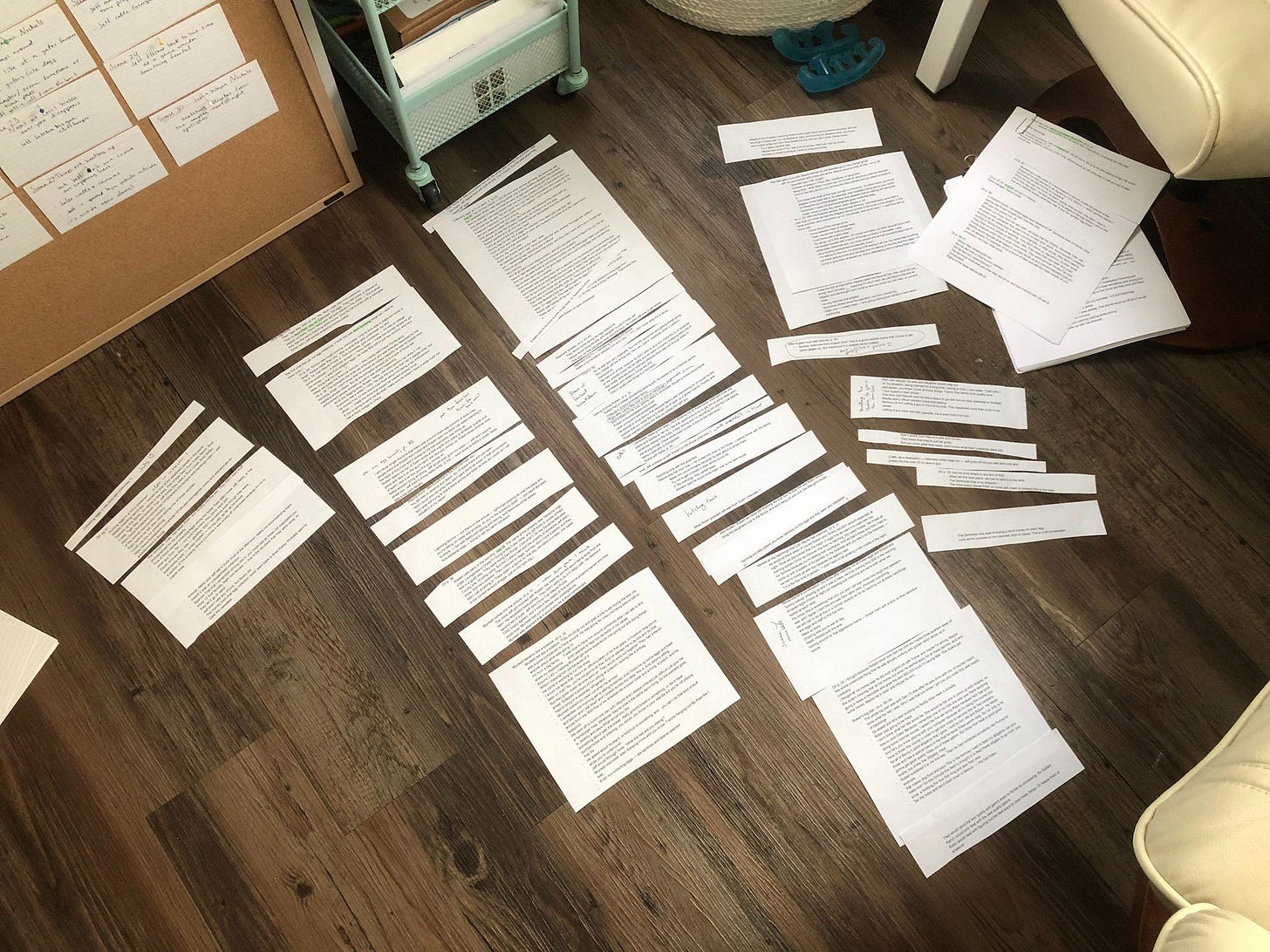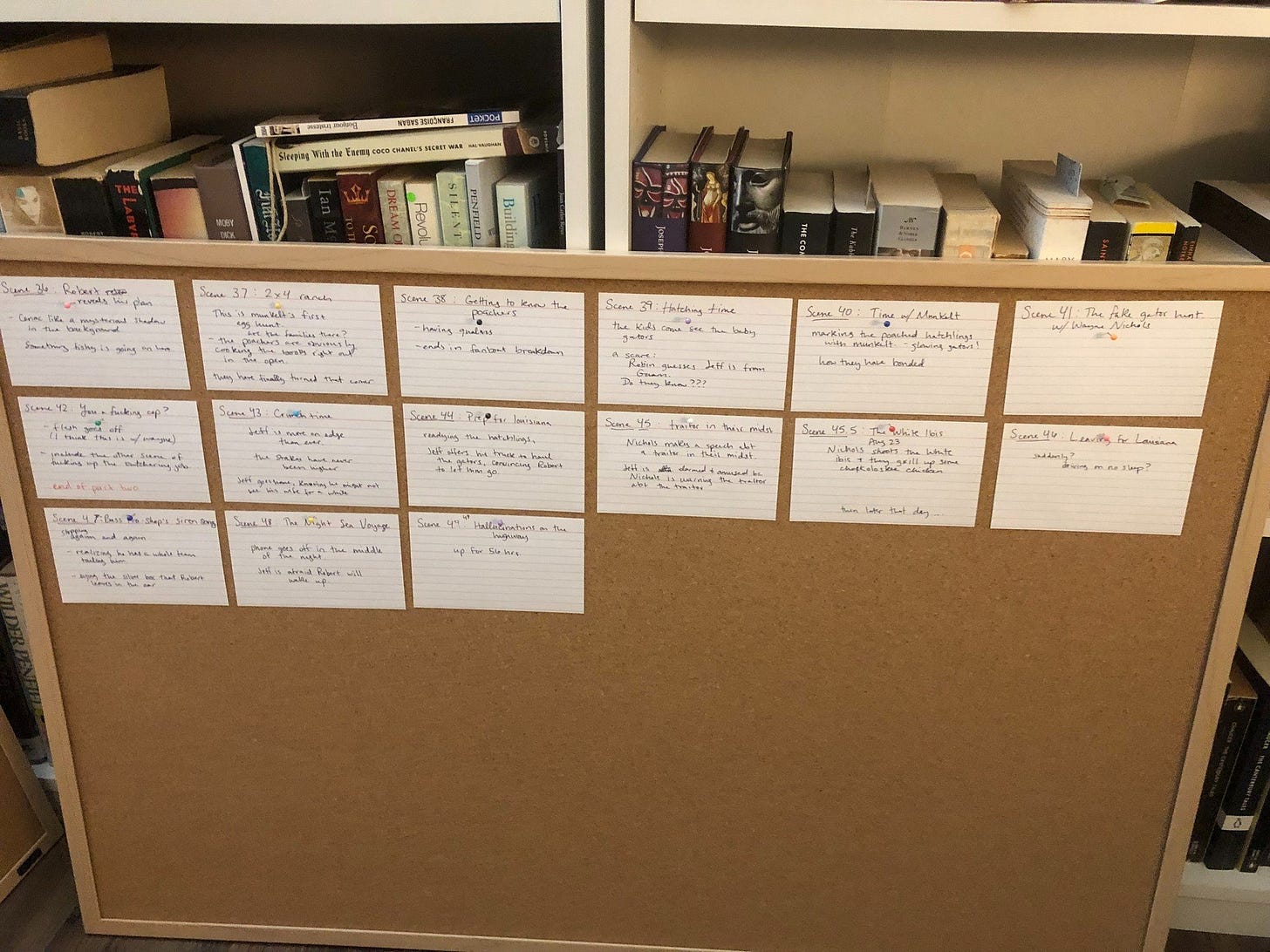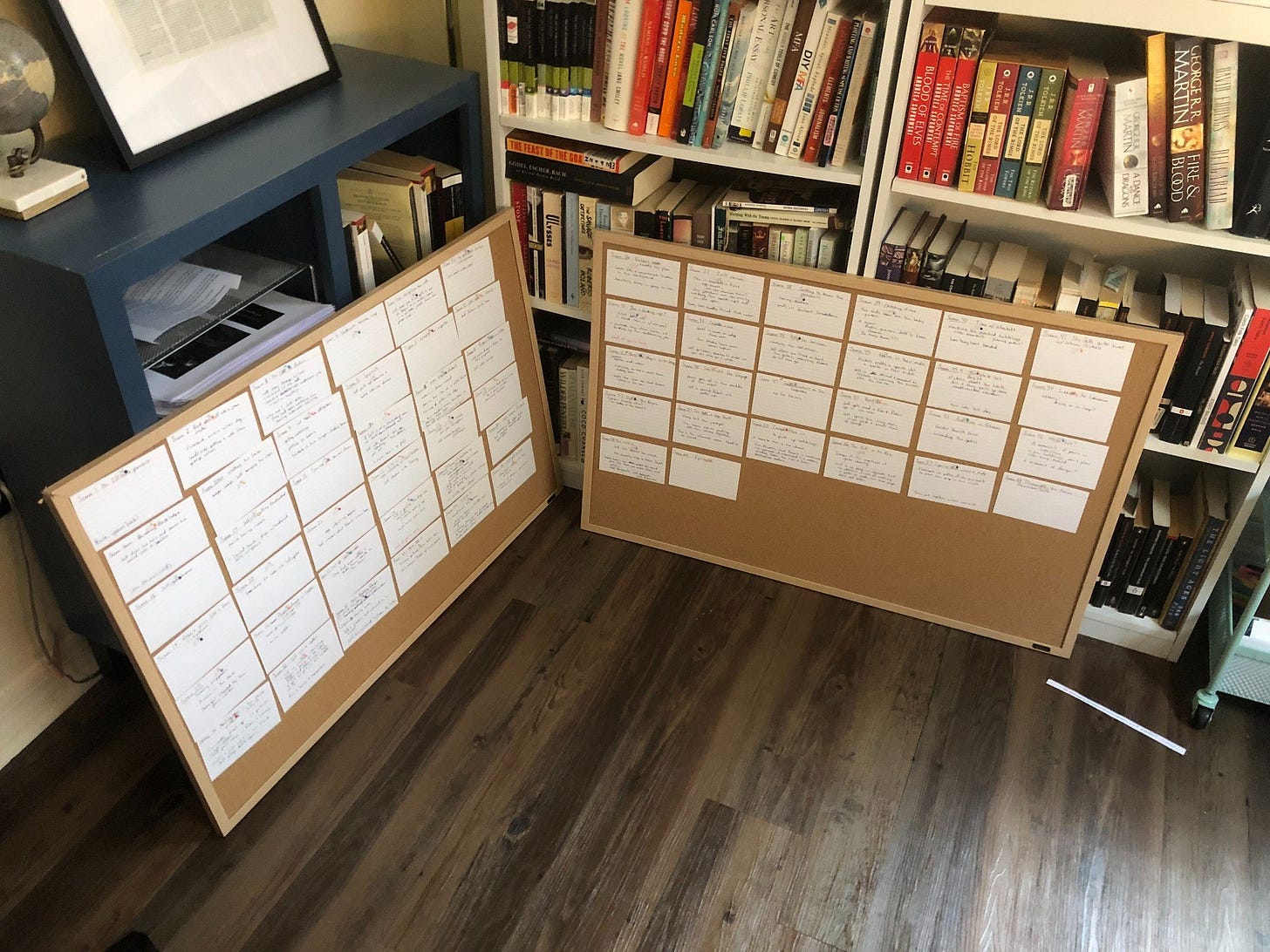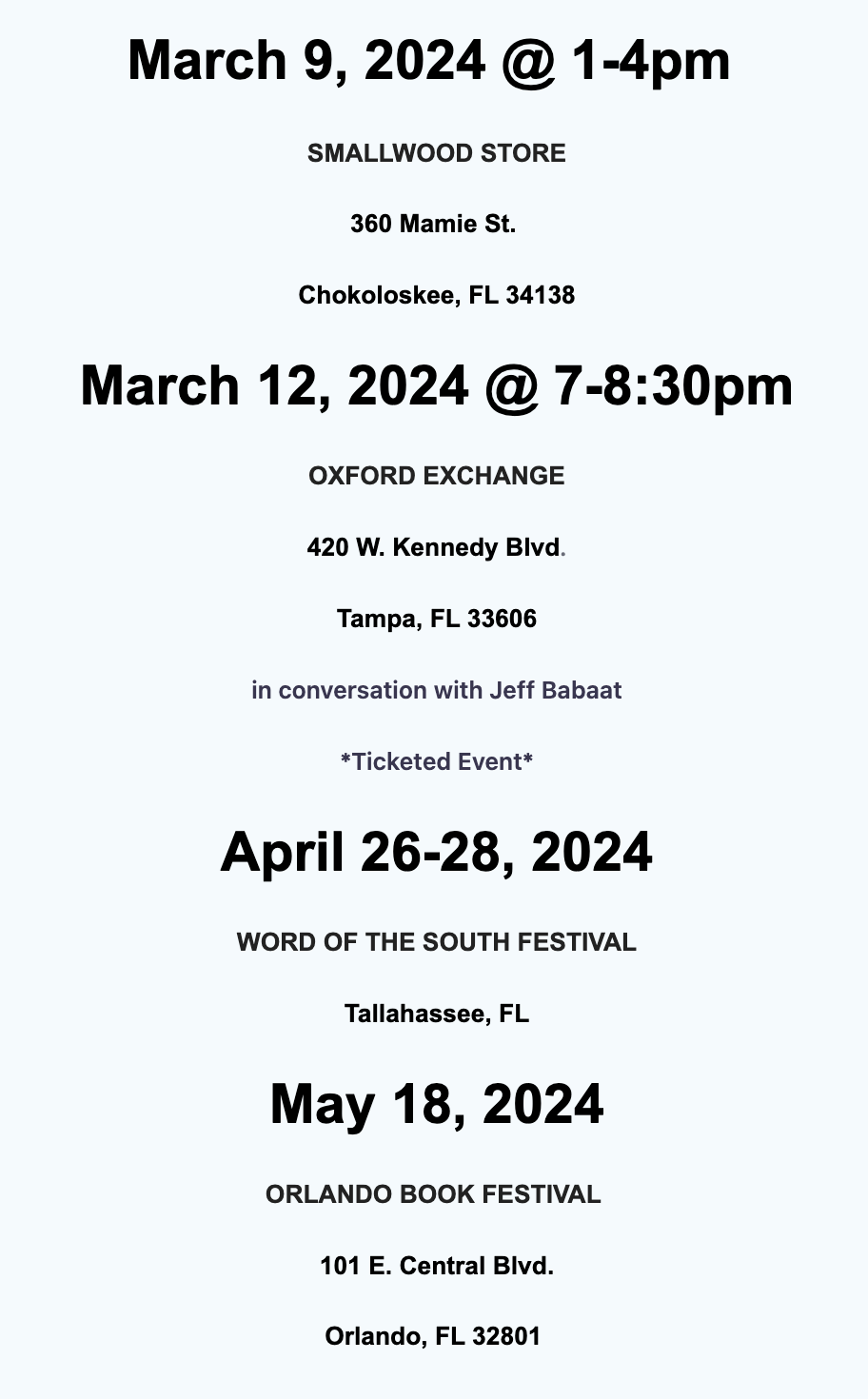What I Did To Write GATOR COUNTRY
I couldn't have written Gator Country without these methods.
Howdy Friends,
For me, the act of writing is just as fascinating as the end result. I'm a firm believer in incorporating tactile objects and handwritten notes into my writing process, particularly via outlining. It's what helped me navigate the winding swamps of creativity and craft as I worked to complete my debut novel, Gator Country.
While every novel or nonfiction book needs a different strategy, perhaps by unraveling the methods I used behind Gator Country, we might uncover some nuggets of wisdom that could inspire your own literary endeavors. Keep reading to find out how I kept all my facts organized while writing Gator Country:
First, since Gator Country is nonfiction, I had to do research and reporting, including gathering and reading documents, locating characters, collecting evidence, interviewing experts, and doing in-person reporting trips.
I recorded audio and visual, transcribed interviews, and generally amassed information. I put all of that together in one document, summarized each idea, and then printed that out.
To take all of that from mess of ideas to cohesive narrative, I physically cut up the document and rearranged it on my floor. I learned this method from a poetry-writing professor. I don't do this for all of my projects, but when I get stuck, it's a sure-fire way to get me moving again.
After I rearranged those bullet-points, I distilled each idea into a visual scene. I wrote each scene as one sentence on a notecard, sometimes with a note or two on the scene's purpose, and what it would illustrate or explain. I continued to rearrange the scenes as I went.
I ended up with 56 scenes in all, two corkboards. This might seem like a lot of planning for fiction, but for nonfiction, having your facts organized is vital, especially when you're writing about crime.
After that, I compiled everything back into one document in order. But I left the notecards up on cork boards to help me stay focused on each scene and not stray too far into the weeds away from the central narrative.
After the draft was done, my editor helped me rearrange things even more, take out extraneous material, and sharpen the story overall. But I wouldn't have gotten there without these methods.
How do you plan your stories?
Yours Truly,
Rebecca
March is right around the corner! I’ll be reading and signing books at Smallwood Store in the Everglades on March 9th. Can’t make it to that one? Then grab your tickets to see me and Jeff Babauta in conversation on March 12th at Oxford Exchange.
Follow Rebecca Renner on Tik Tok, Twitter, Facebook, Threads, and Bluesky for more.








Thanks for these useful prompts 🙏💕📚💕🙏
Great post! Very helpful, makes me want to get some cork boards and try your cutout method.